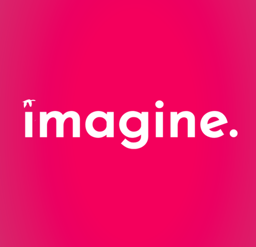Rejected again! What now?
How to handle rejections and even benefit from them?
Learn it from our career coach Marisa who has trained over 200 Imagine fellows in their career & job search in Europe.
Rejection is hard, isn't it? 🫣 But remember, it's not a dead-end but rather a stepping stone in your journey. The key is understanding that rejection has its benefits as well as drawbacks. With each rejection comes valuable lessons, such as resilience, and often unexpected opportunities.
Today let's check out the strategies for seeing rejections as a tool for personal growth.
Before applying for a position, we meticulously research the role, and the company, tailor our LinkedIn, CV, and Cover Letter, and submit our application. This whole process fills us with a cocktail of emotions like excitement, anxiety, and hope, and boosts our 'happy hormones' - Serotonin, Dopamine, Endorphins, and Oxytocin. However, when rejection strikes, it hurts 🤒.
What happens to our bodies and to our brains when we are rejected?
Experiencing rejection can activate the same brain areas as physical pain, triggering a shift in our hormones. Cortisol and adrenaline surge into our bodies, potentially leading to discomfort and pain and this underscores why it's vital to discuss rejections, and here is the reason: it affects our mood, self-esteem, may lead to stress, anxiety, and even influence our performance on challenging tasks.
It’s important to shine a light on the brighter side of rejection:
- Rejection is a potent motivator, pushing us to become a better version of ourselves 💪.
- It provides perspective, maybe the job wasn't the best match for us, or vice versa.
- Rejection teaches patience. It's rare to land a dream job on the first attempt.
- It leads to growth. You'll potentially develop more skills and make informed choices next time 🧗♂️.
- It strengthens us, helping to reveal our true grit and adaptability.
- Rejection helps build resilience. Constructive responses to rejection and positive self-talk can enhance resilience.
- Lastly, rejections can open new opportunities. It's just another way of saying "Thank you, NEXT" 🚪.
So, what is the most beneficial way to deal with a job rejection?
- Don't blame yourself: Learn from the rejection and practice self-compassion 😻.
- Reframe: Don't assume your qualifications aren't remarkable. Rejections are multi-factorial and not always about you.
- Accept your feelings: It's okay to feel disappointed but don't let it control you.
- Stay Organized: Keep your job search well-structured to maintain focus and balance 🚮.
- Seek Feedback: Don't hesitate to ask for feedback after an interview to continue improving.
- Keep Perspective: Focus on what you can control. Job hunting takes time, but it won't last forever (read about our fellow Bahaa who applied to more than 300 positions before finding his dream job).
- Fresh Approach: Approach each new job opportunity with a positive attitude.
- Ask for Help: Seek emotional and professional support from coaches, colleagues, or family members.
- Keep Learning: Build a personal development plan, take relevant courses, and remember: nothing grows in a comfort zone.
- Be Consistent, yet Take Breaks: Keep trying, but don't hesitate to take a breather if needed 🧘.
Remember: "We either make ourselves miserable, or we make ourselves strong. The amount of work is the same." - Carlos Castaneda.
Stay strong, and keep pushing, your dream job awaits!
AND most importantly, follow us on LinkedIn for more tips and regular webinars on topics like rejections, resilience, and many, many more!
Cheers, Marisa & all at team Imagine 💛
© 2018-2022 Imagine Foundation e.V. Made with 🤍 in Berlin.

